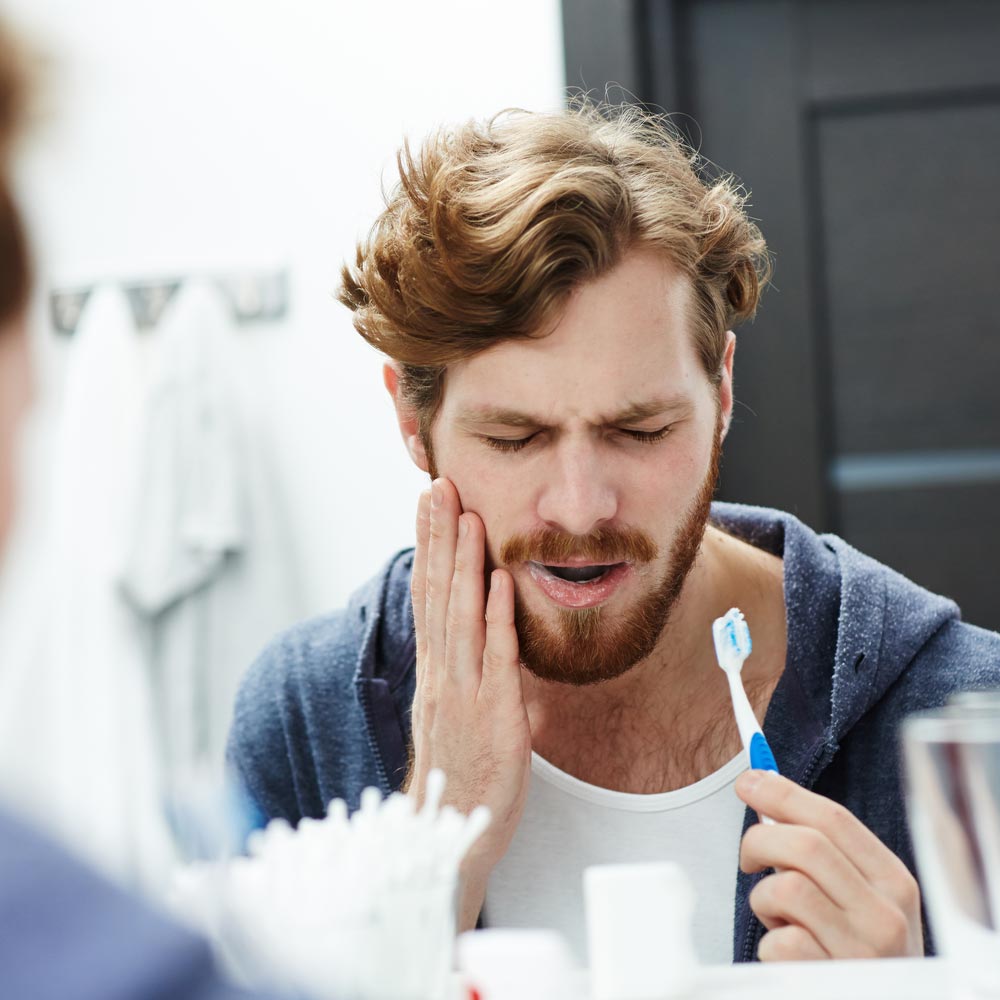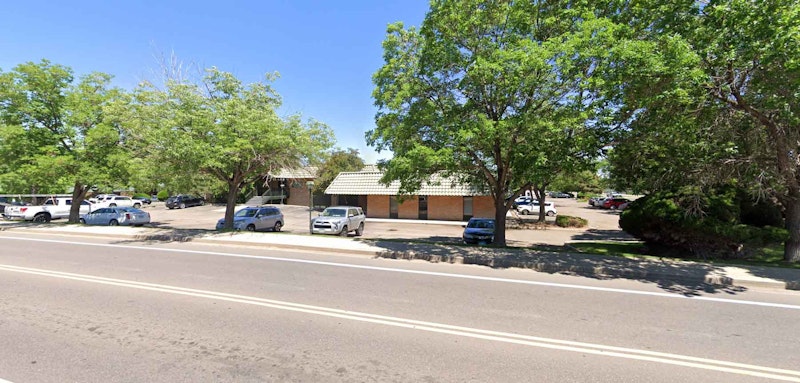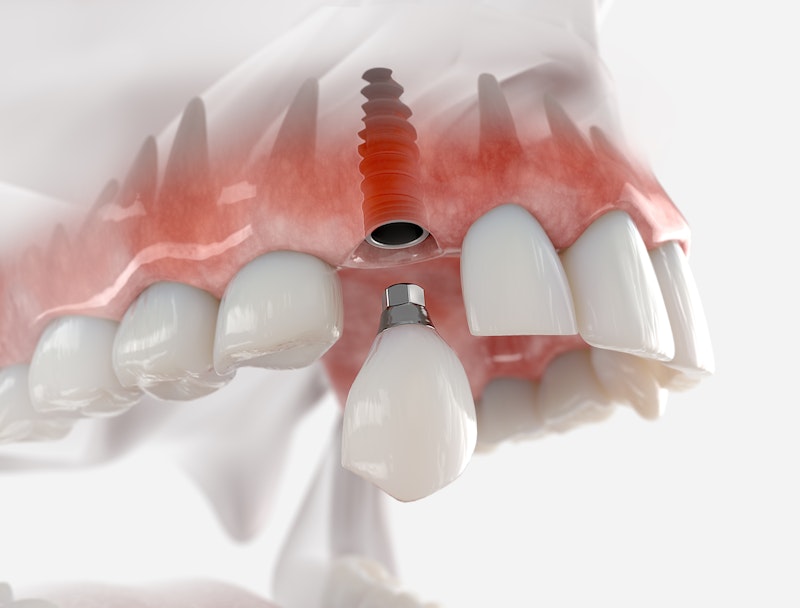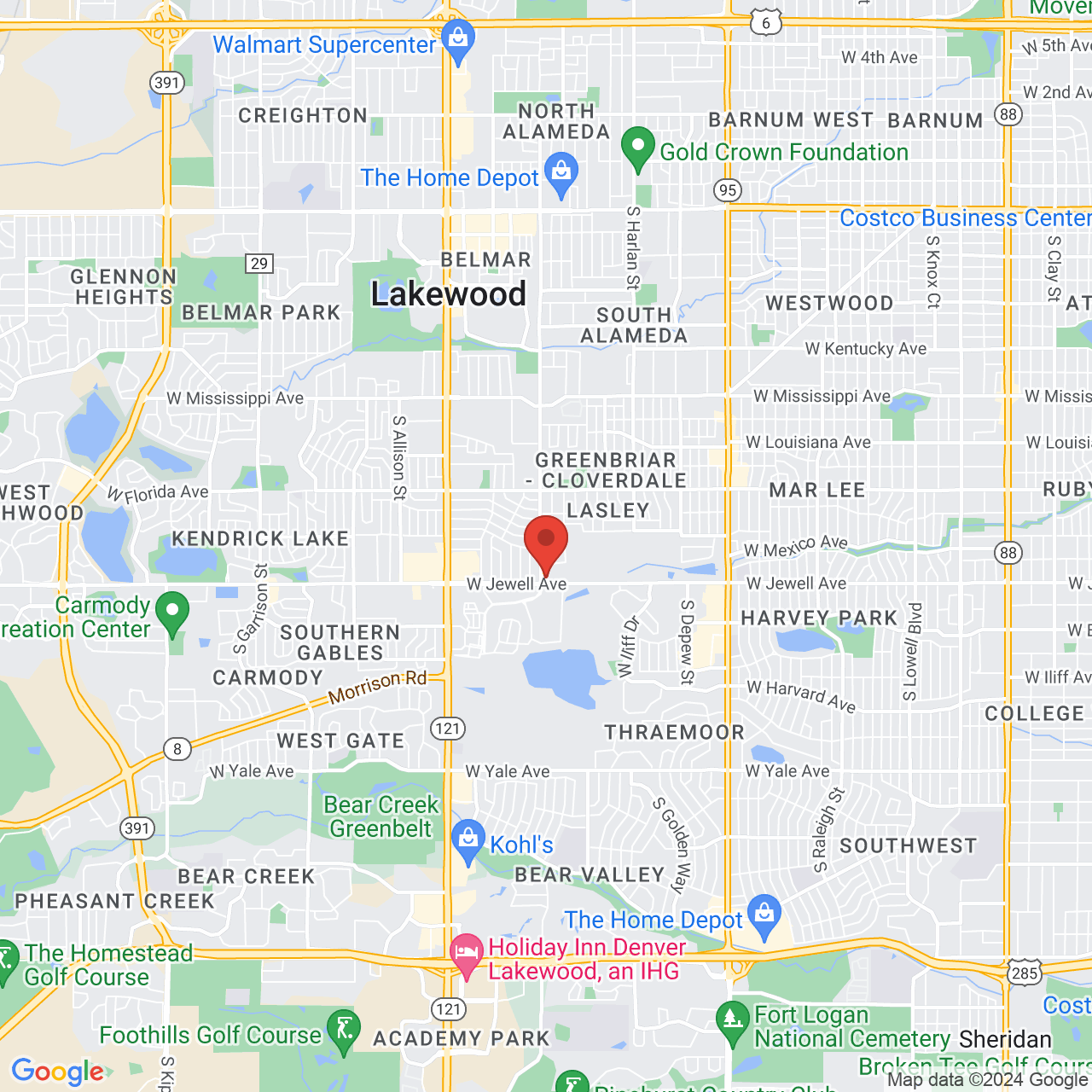
Tooth Extraction
If a tooth is decayed or damaged beyond repair, it can lead to infection and painful symptoms.
Our dentist at Colorado Premier Dental , Brian Polidori, can gently extract your tooth before it causes long-term damage.
Dr. Polidori in Lakewood, CO, can handle even the most complex extraction cases in-office.
Reasons to Extract a Tooth
Extensive Decay
Untreated tooth decay can lead to serious infection. Once decay reaches below the gum line, an extraction may be the only way to stop the spread of bacteria.
Severely Damaged
Some damaged teeth can be repaired with fillings or dental crowns . Teeth that are cracked or chipped beyond repair should be removed and replaced with a false tooth.
Overcrowded Teeth
To prepare for orthodontic treatments, extracting some overcrowded teeth may be necessary.
Wisdom Teeth
Wisdom teeth can grow in crooked or become impacted under your gums. They can cause spacing issues and cause your other teeth to shift. We can extract impacted wisdom teeth and handle complicated cases.
Preparing for Dental Implants
If a tooth is untreatable, your dentist can extract the tooth and prepare the extraction area for dental implants .
Do You Have a Tooth Causing You Pain? Contact Our Lakewood, Colorado, Office Today
Persistent tooth pain is a sign that you may need to have it extracted. Some people think they need an oral surgeon to have a tooth extraction. While oral surgeons are useful for specific dental treatments, tooth extraction is a widely practiced dentistry procedure. Dr. Brian Polidori uses advanced technology and the latest dentistry techniques to gently remove teeth at our dental office in Lakewood, CO . Request an appointment today.
(303) 935-3465

"Hands-down the best dentist in Lakewood!" Hear From Our Patients
Dr. Polidori is definitely the Best Dentist in Lakewood. Hands Down! Always going to classes, keeps up with the latest in Dental techniques. He's honest, always tells you what you need. Reasonable cost. During procedures explains what he's doing in civilian language. I guess you can't say never any pain, but I've never experienced pain during his procedures. Top notch and well trained staff. If your afraid of dentists, don't be afraid of him, get an appointment today.
View on GoogleEverybody in the office is very friendly and helpful. The doctor really cares about patient's dental health education. He spent at least 3 times as much time as other doctors would spend to explain the correct procedures to take care of my teeth. He answered all my questions and I am very satisfied with his recommendations. He sets a good example for me. I promise that I will brush 2 times a day instead of one time.
View on GoogleWhat Happens If I Don't Extract An Infected Tooth?
A bacterial infection inside a tooth can cause an abscess in the surrounding soft tissue. Symptoms of an abscess include:
- Severe toothache that can spread to the jawbone and neck
- Gum swelling
- Fever
- Sensitivity to hot and cold temperatures
- Unpleasant taste in your mouth if the abscess ruptures
If the bacteria remains in the tooth, the infection can spread to other areas of your body. In severe cases, an infected tooth can lead to sepsis, a life-threatening condition.
By contacting our Lakewood, Colorado, dentist as soon as you're experiencing consistent tooth pain and bad breath, Dr. Polidori can examine your tooth and determine if it should be extracted.
Some patients may not experience any symptoms but can still have an infected tooth. By keeping regular exams, Dr. Polidori can routinely evaluate your oral health and detect an infected tooth before it causes serious issues.
The Tooth Extraction Process
We can extract impacted teeth and handle complicated dental cases.
Healing After Your Extraction
It is important not to aggravate the extraction site. If the blood clot is dislodged, a dry socket can form and cause serious pain. If you're experiencing increased levels of pain during the healing process, contact us immediately so we can check the clot and look for signs of dry socket.
People can usually return to their everyday activities within a few days and should completely recover in two weeks. During the recovery period, our Lakewood dentist recommends:
Using a Cold Compress
Swelling is normal after an extraction. Applying a cold compress near your jaw every 20 minutes for the first 24 hours after your tooth extraction can help to manage swelling.
Avoiding Strenuous Activity
For the first 48 hours after your extraction, you should avoid heavy lifting and other strenuous activities as they can increase the risk of swelling and bleeding.
Eating Soft Foods
Eating soft foods like yogurt, eggs, and ice cream will help to protect the treatment site. Patients should avoid using straws since they can dislodge the clot.
Chewing on One Side
Avoid chewing on the side of your mouth where the tooth was extracted. This will help manage pain and minimize the swelling.
Not Smoking
Tobacco products delay the healing process and can cause an infection at the extraction site.
More 5-Star Reviews We Thank Our Patients For Their Support
Been coming here for years. The whole staff are just top notch. Truly the only dental staff that I trust.
View on GoogleI'm so excited to have my smile back and it's such a relief to have my dental health in order!
View on GoogleConsider Dental Implants To Replace Missing Teeth

Unless it is a wisdom tooth, we highly recommend replacing your missing tooth.
One consequence of missing teeth is jawbone atrophy, where patients lose bone tissue and their jaw shrinks.
Your teeth will shift too, which will impact your appearance and change your bite alignment. You might have difficulty speaking clearly and eating certain foods.
To best maintain your oral health, our dentist recommends dental implants .
This dentistry procedure replaces tooth roots, preventing the jaw atrophy that results from tooth loss.
Implants are used to anchor dental prosthetics like crowns , bridges , and dentures.
Dr. Polidori can answer any questions you have about implants at his Lakewood, Colorado, office and review your candidacy.

